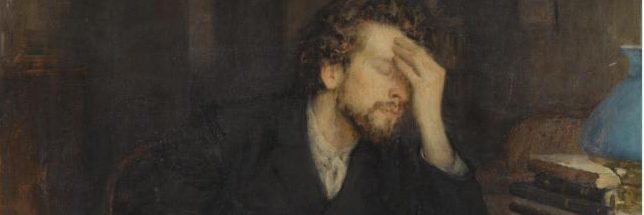 Much about the Trump administration has been upsetting, but the notion that we should arm teachers in schools reaches a new nadir of dangerous idiocy. You only have to think about it for five seconds to see the pitfalls. Not only would this provide handy weapons on site for any disaffected youth, but teachers, who already give more than the average employee in their work, would instantly become first in the firing line, whilst the escalation of gun warfare would only endanger more children in the crossfire. But much has already been said about this online and in the media. In fact, I wonder whether images like the one on the left (which made me laugh) are actually better at skewering the madness. It seems that the situations our politicians want to put us in are so absurd that satire is a more effective response than reasoned debate.
Much about the Trump administration has been upsetting, but the notion that we should arm teachers in schools reaches a new nadir of dangerous idiocy. You only have to think about it for five seconds to see the pitfalls. Not only would this provide handy weapons on site for any disaffected youth, but teachers, who already give more than the average employee in their work, would instantly become first in the firing line, whilst the escalation of gun warfare would only endanger more children in the crossfire. But much has already been said about this online and in the media. In fact, I wonder whether images like the one on the left (which made me laugh) are actually better at skewering the madness. It seems that the situations our politicians want to put us in are so absurd that satire is a more effective response than reasoned debate.
After all, what good is reasoned debate in the post-factual universe? Since we’ve given ourselves permission to believe whatever we want, we all enjoy the benefits of confusing our opinions and assumptions with the truth. And when we have that powerful Hollywood image of the every(wo)man who suddenly finds extraordinary abilities in the midst of a crisis, why would we want to swap it for the reality of what happens to human beings when they’re scared? Malcolm Gladwell in Blink quotes Dave Grossman, a former army lieutenant colonel and the author of On Killing on what happens when our heartbeat rises above 145 beats per minute, and it isn’t pretty:
‘…bad things begin to happen. Complex motor skills start to break down. Doing something with one hand and not the other becomes very difficult… At 175, we begin to see an absolute breakdown of cognitive processing… the part of your brain that is the same as your dog’s… reaches up and hijacks the forebrain. Have you ever tried to have a discussion with an angry or frightened human being? You can’t do it… You might as well try to argue with your dog.’
From here on in your vision becomes restricted and your behaviour excessively aggressive. You’ll be clumsy, helpless and probably void your bowels. Gladwell talks about how people can’t even manage to dial 911 when in a state of panic because they can’t remember the number or access the necessary motor skills. But who wants to face up to the physical reality of fear? It’s a lovely thought, a comforting thought, that any of us could save the day in a desperate situation. But it’s comforting only to our vanity, and it probably wouldn’t be any comfort to our kids in the middle of a school shooting.
There is much political and cultural baggage around guns in America that I couldn’t possibly talk about. But I can talk about one of the most powerful factors in the post-truth universe and that’s the hypnotic effect of stories. One of the all-time greatest stories in the western culture is the one in which the average individual becomes a conquering hero in a violent battle against evil. It’s a story that structures all kinds of aspirations into our lives, and one that encourages us to overprize strength and aggression in the pursuit of power. Very few conquering heroes are born out of the shadow qualities of kindness, gentleness and compassion, and in consequence, these essential qualities are overlooked and dismissed. But we forget where that story of the hero can take us, because its perverse rewriting is at the heart of every school shooting, in which some child decides finally to experience the power of violence and the violence of power in a show of unstoppable strength.
Here’s the paradox: we need stories to understand our lives, past, present and future, but stories oversimplify and distort. Stories are essential to making sense of being alive, but we also have to keep challenging them or they mislead us.
In the first ever online writing course I did, I was given a couple of articles and told to create a 500 word story from them. I kept making the mistake of including too much information, and too many points of view. ‘It’s your story, Litlove,’ the tutor would tell me. ‘You can make of it what you want!’ This horrified my little academic heart. It seemed to me a deal with the devil. If I wanted to tell a powerful story, I had to remove all complexity and ambivalence from the narrative. I could not equivocate. And yet the closer I inched towards that powerful story, the more inaccurate I knew it became.
The other day I was listening with Mr Litlove to a programme on Radio 4 about civilization in which Edward Gibbon was getting it in the neck for his Decline and Fall of the Roman Empire. Since his book came out in the 18th century, we have tended to trace western civilization back in a straight line to ancient Greece and Rome, ignoring the important influences on our culture from the east. We’ve drawn false and foolish boundaries between so-called civilized and primitive peoples. We’ve created a history that’s been all about conquering heroes and strength and power without paying too much heed to the human and ethical cost of it all. But doubtless Gibbon’s editor said to him at one crucial point, ‘It’s your story, Ed. Tell it whichever way you want!’ I expect, though, that he added that if Gibbon wanted it to sell, he should tell the people what they wanted to hear, too. Because cultures get the stories they deserve. There are always some stories we are more willing to hear than others.
So for me, what is important is not the fact that we tell stories that are only partial, but that we keep doing it and in willing ignorance of what stories overlook. I think it’s time to become wiser about the way stories seduce us, give us trajectories that lead us astray as much as they lead us to truth, and insidiously make our beliefs more absolute and justifiable than they really are. In particular, I think we need to challenge this story of the conquering hero and stop giving so much glory to the notion of strength. If we lived in a culture in which we made kindness and compassion heroic, we wouldn’t need so much fear.


 This week I’ve been listening on audio book to Shaun Bythell’s Diary of a Bookseller, which appears to have been generated out of the least amount of work possible for a book, but manages to be mundanely entertaining – or possibly entertainingly mundane, I’m not sure which. Shaun is the Jack Dee of the Scottish second-hand book trade, and as a story about bookshops, this is not exactly 84 Charing Cross Road, but more like the television sitcom, Black Books. Shaun is performing a grumpy, subversive, jaded bookseller, or else he has anger issues. My money’s on this being a bit of an act. However, he does have a hated Goliath in the form of Amazon, which comes in for a great deal of bashing over the course of the book, as he never tires of enumerating the ways in which the retail giant is destroying the little people. Of course, you could equally well say that secondhand bookshops screw over authors, kick the stuffing out of the indies who stock at full price, and ultimately undermine publishing which requires a certain level of revenue to keep issuing a decent range of books. But Shaun is not really a 360 degree man.
This week I’ve been listening on audio book to Shaun Bythell’s Diary of a Bookseller, which appears to have been generated out of the least amount of work possible for a book, but manages to be mundanely entertaining – or possibly entertainingly mundane, I’m not sure which. Shaun is the Jack Dee of the Scottish second-hand book trade, and as a story about bookshops, this is not exactly 84 Charing Cross Road, but more like the television sitcom, Black Books. Shaun is performing a grumpy, subversive, jaded bookseller, or else he has anger issues. My money’s on this being a bit of an act. However, he does have a hated Goliath in the form of Amazon, which comes in for a great deal of bashing over the course of the book, as he never tires of enumerating the ways in which the retail giant is destroying the little people. Of course, you could equally well say that secondhand bookshops screw over authors, kick the stuffing out of the indies who stock at full price, and ultimately undermine publishing which requires a certain level of revenue to keep issuing a decent range of books. But Shaun is not really a 360 degree man. We have a bit of a dilemma on our hands. It’s coming up to the deadline for submitting Mr Litlove’s information to our Open Studios organisation, and we need to choose an image to represent his work in the calalogue. Open Studios happens annually during the month of July in Cambridge. For four weekends in a row, local artists open their studios and workshops to the public, and last year Mr Litlove used the event to launch his furniture business. The image he chose for the 2017 catalogue was the one you see above, the cafe chair, and it worked a treat.
We have a bit of a dilemma on our hands. It’s coming up to the deadline for submitting Mr Litlove’s information to our Open Studios organisation, and we need to choose an image to represent his work in the calalogue. Open Studios happens annually during the month of July in Cambridge. For four weekends in a row, local artists open their studios and workshops to the public, and last year Mr Litlove used the event to launch his furniture business. The image he chose for the 2017 catalogue was the one you see above, the cafe chair, and it worked a treat.







